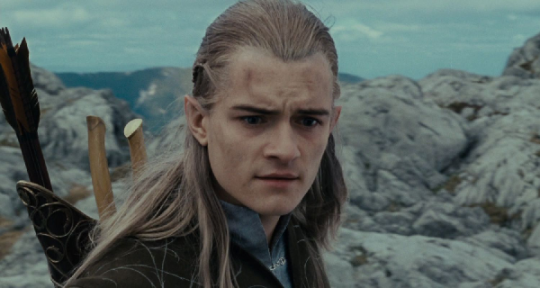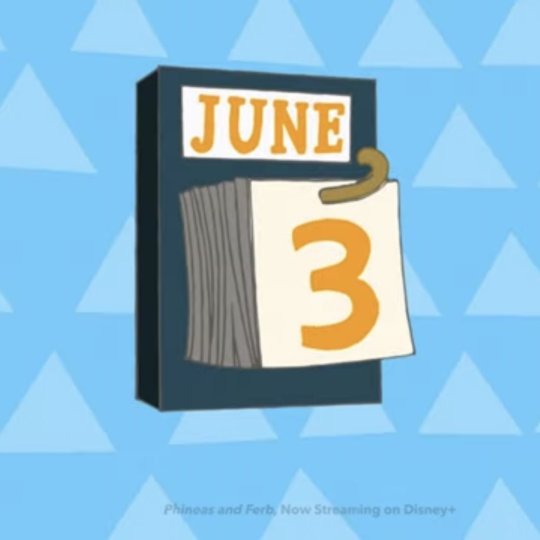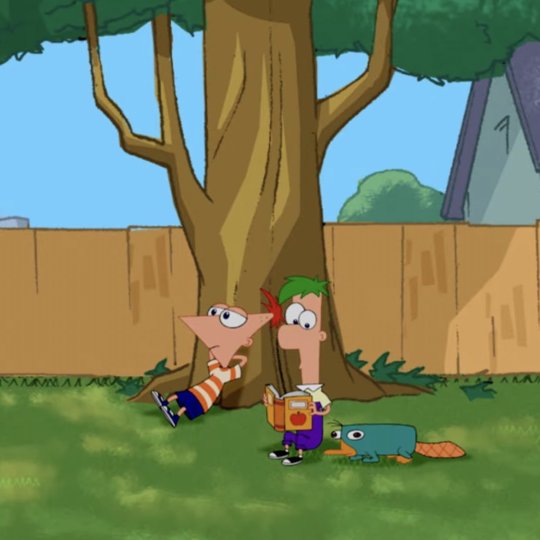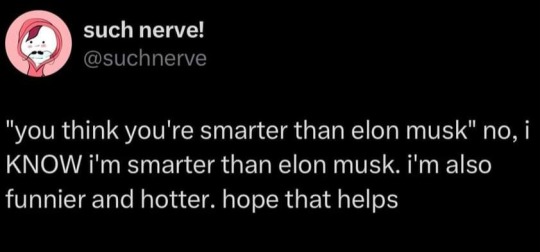Don't wanna be here? Send us removal request.
Text
why be radically exclusionary abt queerness when you could be radically inclusionary instead. let's inflate the numbers. let's become the majority. the sky's the limit
47K notes
·
View notes
Text







“Oh yeah, of course. That’s the whole point.”
David Leviathan on Suzanne Collins // Revenge of the Sith novelization // Taylor Swift, Hoax // Aeschylus, Orestes // Paramore, Last Hope // Aeschylus and Robert Icke, Orestia // @sw_holocron & Tony Gilroy, Twitter
8K notes
·
View notes
Text

I have some news for members of the united states armed forces who feel like they are pawns in a political game and their assignments being unnecessary.
82K notes
·
View notes
Text
okay guys 🤩 i don't know if anyone will see this but let's play a game
#doctor who#dw spoilers#belinda getting character assassinated/in-universe rewritten into being a mother#when that was something established to be kinda fucked actually JUST LAST EPISODE
289 notes
·
View notes
Text
Watching the first episode of Age of Umbra and specifically watching Marisha play Brixton solidified something I've been thinking for a while: Marisha thrives when her characters have an external scaffolding of some kind that she can build off of and occasionally chafe against. Brixton has this in the form of the Order of the Pyrekeepers that she grew up in, and in her devotion to the tenets of an ancient order of knights that she discovered and became obsessed with. She desperately wants to embody the ideals of nobility and knighthood from the old world, and she feels stifled and bored by the life of a Pyrekeeper, even as she acknowledges the work is important and the life itself is charmed.
As a side note, it was an incredible choice by Marisha to tie this character conflict to an older character, feeling constrained by your life and wanting to do and be more is a conflict often given to characters in their teens or early twenties, so seeing it given to a slightly older adult is nice here.
Marisha's other characters (bar those appearing in one shots) have this same sort of scaffolding that both provides a defined place in the world for her character and something for her to rub up against. Keyleth has the Ashari and the Aramente and the expectations that puts upon her and her fears that she won't measure up. Beau has the Cobalt Soul and the fraught circumstances that saw her entering the Order. Patia has her family and the mage hierarchy of Avalir and how her slavish devotion to that ultimately impacted how she relates to others. The two real exceptions among her roster of characters, in that they are not part of any institutions in a defining way, are Laudna and Beatrix.
In the latter's case, instead Marisha defined her by her connections to Sean and Maggie Finnerty and the tragedy of losing her husband in the attack that started the Great War. Losing her husband provided an emotional base for Marisha to build of off and the Finnertys gave her people to play of off to express that. Sean's personal feelings about himself and his place in the world being so counter to Beatrix's views on the same ended up providing a springboard for great character moments for both. As far as I can tell, she tried to do something similar with Laudna, where she defined the character emotionally with the tragedy of being murdered and raised by Delilah Briarwood and socially with her connection to Imogen but it didn't end up working out as well in her case. My best guess is that a combination of Matt simply not developing the patron side of her relationship with Delilah strongly early in the campaign meaning there wasn't a lot to work with there for much of it, Laura generally being conflict averse meaning that she wasn't as willing to challenge Laudna's perceptions of Imogen as Brennan was challenging Beatrix's of Sean's, and Laudna deeply lacking in any solid connections to the people and institutions of Exandria otherwise meant that Marisha ultimately ended up without the scaffolding she uses to really ground and build up her characters, and Laudna ended up easily her weakest character as a result. Because that scaffolding is what she uses as a base to build out her characters; it sets the groundwork and conditions out of which they will grow as people. I'm excited to see what she does in Age of Umbra given this groundwork for Brixton has already been so solidly laid out.
208 notes
·
View notes
Text
I've seen people point out how Taliesin struggled to adjust from Percy's whatever-you-do-stay-at-range build to the more up-close nature of a Bloodhunter, but this is the first time it's stuck out to me like a sore thumb. Molly was damn near useless in the first arena fight, despite having his rites activated, because he hung back and used Vicious Mockery(with the creature succeeding on most of its saves, resulting in no damage), perhaps the least optimal strategy available to him at the moment besides doing nothing.
18 notes
·
View notes
Text
“average person eats 3 spiders a year” factoid actualy just statistical error. average person eats 0 spiders per year. Spiders Georg, who lives in cave & eats over 10,000 each day, is an outlier adn should not have been counted
1M notes
·
View notes
Text
oooh, Caleb wanted to sleep with the Beacon because his anti-scry necklace would've shielded it as well. But no one else know he had that so it sounded insanely risky and a guaranteed implication to everyone else. And he still doesn't trust them enough to tell them about his shielding so he yields to their logic instead, because yeah, without the charm it is an objectively stupid thing to do. Foreshadowing and excellent character work.
207 notes
·
View notes
Text
wait i took a quick peek at some of the more detailed omen archive stats. and C3 had 90 combats (I didn't split out the ones that were Crown Keepers/Vox Machina/Mighty Nein/Downfall crew) and Campaign 1, of comparable length, had like 120, and also like...downtime, despite a lot of the episodes being much shorter and there being a lot less slow travel. Like what the fuck were Bells Hells DOING for the entire campaign. I know I watched it but actually what were they doing with their time. like were they literally just having the same conversation of Should We Kill Entities For Not Liking Us Enough repeatedly for the equivalent of 30 combats (possibly)?
#not to mention the C3 episodes on average were longer than C1 eps#first...third of C1 regularly had eps where actual game time was under three hours#I think it was actually more uncommon to have play time above that before the Conclave arc#or at least the Briarwoods#before they more or less settled into 3-4 hour eps as a default#C3 on the other hand had 3-4 hour eps as a minimum#and iirc had more 4+ hour eps than even C2#let alone C1
133 notes
·
View notes
Note
Do you think ethics are just an attempt at being a healthier form of selfish?
In one of your Detail Diatribes where Batman confronts Catwoman and tries to stop her from killing Falcone, you highlighted the fact that his reasoning was not to protect her father, but to try and save her. Ever since, some very strange ideas about the nature of selfishness and selflessness have been rattling around my head.
It only started coming into focus when I tried to put into words why it was a bad thing that D-16 killed Sentinel Prime. My best answer right now is because it made D-16 into Megatron. Orion wasn't trying to save Sentinel, he was trying to protect the cybertronian people. Maybe if Orion focused more on saving D-16, they wouldn't have lost their friendship and all of Cybertron would be better for it. Of course, in the end, Megatron was the deciding factor in making himself, caring more about his pride than his current identity, but this highlights a strange selfish quirk in sustainable selfless behavior.
If you are purely selfless you suffer from spending more of yourself than you have to give. If you're too selfish you can't maintain the human connections that are a requirement for being a complete and healthy person. It leaves the best options as being selfless to make your environment an easier one for you to live in. Where your actions for others are repaid by the selflessness from your community. Or, being selfish with your charity. Taking care of what you care about because their well being positively contributes to your own.
To be fair, the opening sentence now looks like an incomplete thought. It probably should be asking if you think ethics is just an attempt at being a more healthy form of selfish and selfless. Really, just asking if ethics is meant to make you better at being a person, which seems like a question that can answer itself. Still, it feels like an important insight to highlight that to be ethical isn’t about how much of your own life you're willing to sacrifice. It's hard to be a good person when you're not a person anymore.
This is a fascinatingly deep question, and I'm very tickled that our two touchpoints in it are a transforming robot tank and Batman.
My personal opinion is that ethics and morals are not reflections of some universal truth of Justice and Goodness, as they are often framed, but are instead best-practice guidelines on how to function in the big, messy world without causing undue suffering to yourself and others. A facet of this is determining, case by case, how much you need to prioritize yourself vs how much you can afford to help others - in the framing you've proposed, selfishness vs selflessness.
Taking the specific examples we're focusing on - two cases where someone attempts to prevent a revenge killing for the benefit, not of the victim, but of the avenger - I think they reflect this worldview, that the killing is not seen as some innately universally-judged evil act that must be prevented for its own sake, but that the act of killing will harm the killer in a way the person trying to stop them doesn't want to see.
For Catwoman, committing premeditated murder wouldn't solve any of her problems in any way that arresting Falcone and having him legally unraveled would. It'd just park a first degree murder charge on someone who'd up til this point only dealt with petty larceny, and it would potentially weigh her down with misery and regret as she grappled with the trauma of taking a life.
For Megatron, killing Sentinel Prime wasn't a bad action because he deserved to live. They just spent that whole fight scene tearing through enemies. They're warriors on track to spend the next four million years killing each other; the whole "taking a life" ship has already sailed. The problem is that Sentinel is a symbol and a structural part of the political narrative in the founding of the next stage of Cybertron's society. If the first thing the new regime does is bloodily avenge itself on the face of the old regime for the personal wrongs it did them, that proves that the only thing they care about is personal satisfaction of their individual desires - just like Sentinel. Meet the new boss, same as the old boss. If they can instead take a step back, think of the good of Cybertron as a whole, enforce a rule of law and a fair system of justice that applies equally to everyone, even on someone they personally loathe, that would signify integrity and credibility and the hallmark of wise, just and fair leadership capable of setting aside personal feelings for the greater good. It's not about Sentinel; it's about whether the satisfaction of killing him is worth the price of enforcing forever that personal vendettas are more important than the well-being of the people of Cybertron. Which makes it really obvious which one Megatron is going to pick.
My hottest take, and I mean this very genuinely, is that most of the human perception of what constitutes goodness and justice is one thousand percent based on vibes, and is extremely susceptible to narrative reframing. We see an unsympathetic victim (Sentinel Prime, Falcone) who has gleefully caused suffering to innocent people (so judged because they are framed sympathetically, not because we've actually enumerated their lifelong actions to determine they've never done anything wrong) and we feel (feel) that it would be right and just for them to suffer consequences (emphasis on suffer) because that would balance the scales on this vibes equation and that would make us feel like justice had been served. Would this suffering lead to any material good? Not inherently. Would it heal the victims? Not usually. Would it remove the source of the problem? Categorically not, what with how negative reinforcement works (or rather does not work.) It also wouldn't do anything about the other people empowered by the same system to be just as shitty in just as many ways that just happen to be offscreen from our POV. But it feels fair. So what is justice, if it reduces down to "I want them to hurt for the hurt they've caused me"? If it can be sated with a spectacle or distracted by a long nap and a good joke to let the feeling fade? What purpose does this justice serve if it is devoted wholly to the satiation of a bone-deep chordate-brain hunger for Retributive Violence rather than towards actually ensuring that the lives of those harmed are healed and supported and built up again after being broken down? (This is the entire core character arc in The Batman, btw, I'm not just monologuing for no reason here. He calls himself Vengeance for a reason, and the reason is he's doing Batman wrong)
That feeling - that white-hot burning core of Righteous Fury - is the unexamined heart of many systems of morality that focus, not on doing good, but on exacting satisfying retribution on Bad People Who Deserve It, categorized as People Who I Can Hurt Without Feeling Bad Myself. It's a very tempting concept for people who have suffered at others' hands. That feeling, that powerful instinctual understanding of "that's unfair," is incredibly strong. In my opinion, most systems of ethics are built, not around relitigating what is Good and what is Bad per se, but in trying to shape and curb that bone-deep, unbelievably powerful desire to rend the flesh from the bones of your tormenters.
But I mentioned that feeling is susceptible to narrative reframing. This is, as I understand it, a huge part of lawyering. Tell the story of what happened using true events and adding no falsehoods, but highlight the parts that make it feel like your client is the one who is being treated unfairly. They're not an unsympathetic wrongdoer who you can punish without personal moral stain - they're a loving spouse, a parent of three adorable children, they have a really cute puppy, they donate to charity, they're a wonderful conversationalist, a kind friend, etc etc. All those things can also be true of people who do terrible things, but thinking about them defuses that White Hot Core by making us sympathize with the sympathetic parts of them.
This is incredibly well-understood in fiction. It's the whole reason the tropes Kick The Dog and Pet The Dog exist. When you want the audience to root for a character's destruction, leave aside any of their potential quiet moments of sympathy - their tragic backstory, their cute pet, their adorable relationship with their mom - and instead show them going out of their way to commit some minor act of petty cruelty, say Kicking The Dog. The audience will infer that this badness is 24/7 and they have no reason to curb their enthusiasm for Righteous Vengeance. But if the writer wants the audience to see a spark of good in them, to sympathize, to believe they can be redeemed, they'll highlight one of those small moments of charming kindness, and allow them to Pet The Dog instead.
Neither of these acts, in the grand scale, have any bearing on the morality of this person's actions. A pet dog doesn't counterbalance a razed village; a kicked dog doesn't negate a generous contribution to the local soup kitchen. Goodness and badness is not a linear scale added or subtracted to by opposing deeds. BUT showing them to an audience reframes them narratively, and THAT is what shapes the judgment of the White Hot Burning Core. In the space of fiction, this form of bottom-shelf emotional manipulation is one of the cleanest ways to get the audience to root for the messy destruction of what is ostensibly, in the universe of the fiction, a wholly complex and living person who definitely has reasons for everything they've done, even ones that could be framed sympathetically when shown.
Meanwhile, in the real world, ethics are an attempt to judge what is best in a given situation without trusting the White Hot Burning Core to make the call, no matter how compelling "but it would feel really good though" might seem. They try to give someone perspective, context, other priorities to consider. The White Hot Burning Core might want you to rip someone's arms off for driving slow when you've got important places to be, but Ethics can present a number of compelling reasons not to do that - even if it's just "ripping their arms off will definitely make me even more late." And yes, this can be a balance of Selfishness Vs Selflessness. You are one of the people whose wellbeing ethics is designed to make you prioritize improving even if it feels weird, and when all other things are equal, your own health and happiness can be the deciding factor. In a world with an overarching Moral Force that weighs the goodness of your soul by sifting through every grain of action and intent seeking negativity to punish you for, absolute selflessness to the point of self destruction would still probably be seen as Morally Wrong, simply because the universe is a better place with you in it trying your best.
Anyway, if doing the right thing was simple, easy and painless, we probably wouldn't have so many thousands of years of arguing about what it looks like. Good luck out there everybody 👍
709 notes
·
View notes
Text
Legolas pretty quickly gets in the habit of venting about his travelling companions in Elvish, so long as Gandalf & Aragorn aren’t in earshot they’ll never know right?
Then about a week into their journey like
Legolas: *in Elvish, for approximately the 20th time* ugh fucking hobbits, so annoying
Frodo: *also in Elvish, deadpan* yeah we’re the worst
Legolas:

274K notes
·
View notes
Text
legendary quote from Eoin Colfer
“I’m going to tell you something now. When I wrote (and this is quite embarrassing), when I started to write Artemis Fowl, I got the words ‘centaur’ and 'satyr’ mixed up. So, I intended to write a satyr like Mr. Tumnus, uh, but I wrote the word centaur. And so for the entire book, I had written centaur, but meant satyr, and then I was too embarrassed to admit that. Uh, and so I just left it. And so I had to put in references to four legs and everything. So that’s why Foaly is a centaur. Because I mixed up, and people say to me “oh, it’s very clever the way you did the Foaly pun, since he’s a centaur,” and I’m like “that was a total fluke.” I was so lucky. So then I had to keep it, basically.”
this was during the livestreamed author chat q+a session for Fowl Twins 2 at Books Of Wonder on October 17, I think the vod is still up
#this explains so goddamn much#like#even as a kid I knew that horses were big#and by extension centaurs were big#and foaly kept throwing off my sense of scale for the rest of the People because. like. centaurs aren't tiny#centaurs aren't that much bigger than they other folk#ergo the other folk must not be that small#but then they were that small
7K notes
·
View notes
Text
Tonight's stream, which starts at 6PM PST has a run time of 2 Hours and 39 Minutes. There is no break.
(Always subtract 17 minutes from the run time because T/witch counts the art gallery. Also for those who are the Chicago Live Show tonight, I hope y'all enjoy it. The VOD will be Monday at noon per usual.)
#oh huh#take out the art reels#and this is well under 2.5 hrs#might be the shortest game since early C1
54 notes
·
View notes
Text
I forgot to say it last week but my one huge critique so far of Wildemount Wildlings was the surprise editing cut to player closeups after over 2 hours of bliss of not dealing with that editing choice.
Why does CR keep trying to make that happen.

47 notes
·
View notes





